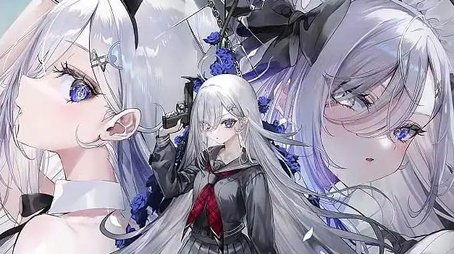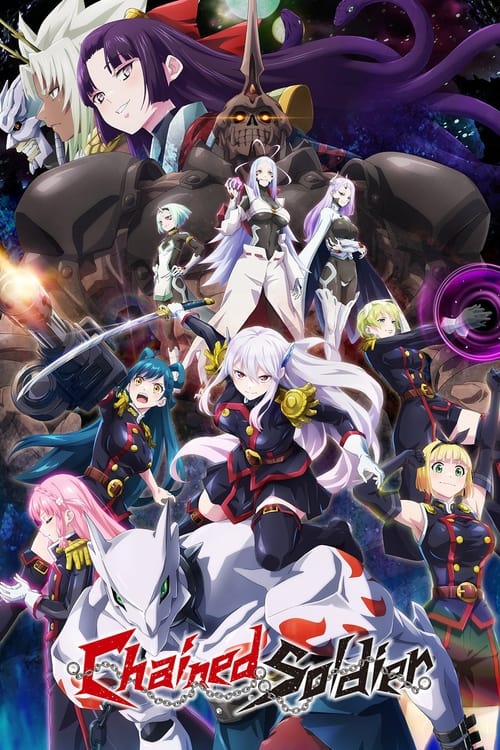
Ask Your Own Question
What is the plot?
The episode begins with Rick Sanchez in his garage, where he is working on a new invention. He is in a state of disarray, surrounded by various gadgets and tools. Morty enters, and Rick reveals that he has turned himself into a pickle to avoid attending a family therapy session that his daughter, Beth, has scheduled for the family. Morty is initially confused and somewhat impressed by Rick's transformation, but he also expresses concern about Rick's decision to avoid therapy.
As Rick, now a pickle, rolls off the workbench and onto the floor, he quickly realizes that he needs to find a way to turn back into a human. He manages to maneuver himself out of the garage and into the outside world. In the process, he encounters a rat, which he kills and uses its body to create a makeshift suit, allowing him to move more effectively. This transformation into a "Pickle Rick" gives him a sense of power and control, but it also highlights his reckless nature.
Meanwhile, Beth, Morty, and Summer are at the therapy session. The therapist, Dr. Wong, tries to engage them in conversation about their family dynamics. Beth expresses her frustration with Rick's behavior and how it affects their family. Morty and Summer also share their feelings about Rick, revealing the emotional toll his actions have taken on them. Dr. Wong encourages them to confront their issues, but Beth is still preoccupied with Rick's absence.
Back in the sewers, Rick encounters a group of rats and a group of armed men who are part of a larger criminal organization. He uses his intelligence and resourcefulness to fight his way through the men, employing various gadgets and weapons he has created from the rat's body and the environment around him. The action is intense, with Rick displaying his usual bravado and cunning as he takes down the armed men one by one.
As the therapy session continues, Beth becomes increasingly agitated by the discussion of Rick's influence on their lives. Dr. Wong tries to guide her to understand her feelings, but Beth struggles with her emotions. She reveals her deep-seated issues with her father, including feelings of abandonment and resentment. Morty and Summer also contribute to the conversation, expressing their own struggles with Rick's behavior.
Back in the sewers, Rick finds himself in a confrontation with the leader of the armed men, a man named Jaguar. The two engage in a brutal fight, with Rick using his ingenuity to gain the upper hand. He ultimately manages to defeat Jaguar, but not without sustaining injuries. This confrontation showcases Rick's determination to survive and his willingness to do whatever it takes to escape his predicament.
Meanwhile, the therapy session reaches a climax as Beth confronts her feelings about Rick. She acknowledges the pain he has caused but also expresses a desire to understand him better. Dr. Wong encourages her to consider the possibility of forgiveness and healing, but Beth is torn between her love for her father and the damage he has inflicted on their family.
As Rick continues to navigate the sewers, he eventually finds a way to escape. He uses a combination of his intelligence and the resources available to him to create a makeshift vehicle. He manages to break free from the underground lair and makes his way back to the surface, where he reunites with Morty, Beth, and Summer.
The episode concludes with Rick returning home, where he is confronted by Beth about his actions. She expresses her anger and disappointment, but Rick brushes it off, showcasing his typical disregard for the emotional consequences of his behavior. The family dynamic remains strained, highlighting the ongoing issues that they must confront as a family. The episode ends with a sense of unresolved tension, leaving the characters and their relationships in a complicated state.
What is the ending?
In the ending of "Pickle Rick," Rick, who has transformed himself into a pickle to avoid family therapy, ultimately confronts his own emotional issues. After a series of violent encounters, he escapes from a rat-infested sewer and faces off against a group of armed men in a secret facility. Meanwhile, Morty and Summer attend the therapy session with their mother, Beth, where they discuss their dysfunctional family dynamics. The episode concludes with Rick returning home, having survived his ordeal, but still grappling with his emotional detachment. The family leaves the therapy session with unresolved issues, highlighting the ongoing struggles within their relationships.
As the episode nears its conclusion, the scene shifts back to the secret facility where Rick, still in his pickle form, has been captured by a group of armed men led by a character named Jaguar. After a fierce battle, Rick manages to outsmart his captors using his intelligence and resourcefulness. He constructs a makeshift exoskeleton from the remains of the dead bodies around him, allowing him to move and fight effectively despite being a pickle. The tension escalates as Rick faces off against Jaguar, who is impressed by Rick's ingenuity but also determined to kill him.
In a climactic moment, Rick and Jaguar engage in a brutal fight, showcasing Rick's survival instincts and his willingness to do whatever it takes to escape. However, the fight is interrupted when Rick reveals that he has a plan to escape, which involves using a device he created earlier in the episode. He manages to activate it, leading to an explosion that allows him to escape the facility.
Meanwhile, Morty and Summer are at the therapy session with their mother, Beth. They discuss their feelings about Rick and the impact of his behavior on their family. Beth expresses her frustration with Rick's inability to connect emotionally, while Morty and Summer share their own struggles with their grandfather's reckless behavior. The therapy session serves as a stark contrast to Rick's chaotic adventure, highlighting the emotional turmoil within the family.
As the episode wraps up, Rick returns home, having survived his harrowing experience. He reverts back to his human form, but the emotional scars from his journey remain. He enters the house to find his family still grappling with their issues from the therapy session. The unresolved tension hangs in the air, emphasizing the ongoing dysfunction within the family unit.
In the final moments, Rick's nonchalant demeanor suggests that he has not fully confronted his emotional detachment, leaving viewers with a sense of ambiguity about his character's growth. Morty and Summer, still affected by their experiences, look at Rick with a mix of admiration and frustration, encapsulating the complex dynamics of their relationship. The episode concludes with the family still in disarray, underscoring the themes of avoidance and the struggle for connection that permeate their lives.
Is there a post-credit scene?
In the episode "Pickle Rick," there is indeed a post-credit scene. After the main story concludes, the scene opens with a shot of the family's living room. We see Morty and Summer sitting on the couch, looking at the television. They are discussing the events that just transpired, particularly the bizarre situation with Rick turning himself into a pickle to avoid family therapy.
As they talk, the camera shifts to show Rick, who is still in pickle form, lying on the floor. He is surrounded by various tools and gadgets, indicating he has been working on something. The scene captures the absurdity of Rick's situation, as he is a pickle yet still deeply involved in his scientific pursuits.
The post-credit scene serves as a humorous reminder of Rick's relentless nature and his inability to confront his emotional issues directly, even after the chaos of the episode. It encapsulates the show's blend of dark humor and existential themes, leaving viewers with a sense of both amusement and contemplation about Rick's character and his relationship with his family.
Why does Rick turn himself into a pickle?
Rick turns himself into a pickle to avoid attending a family therapy session with his daughter Beth and grandson Morty. He sees it as a way to escape his responsibilities and confrontations, showcasing his tendency to prioritize his own comfort over family obligations.
What challenges does Pickle Rick face after transforming?
After transforming into a pickle, Rick faces numerous challenges, including being flushed down a sewer, where he must navigate through a rat-infested environment. He uses his intelligence and resourcefulness to create makeshift weapons and ultimately fights off a group of rats, demonstrating his survival instincts.
How does Morty react to Rick's transformation into a pickle?
Morty is initially confused and somewhat amused by Rick's transformation into a pickle. However, as the episode progresses, he becomes increasingly frustrated with Rick's antics and avoidance of family issues, highlighting the strained relationship between them.
What role does the therapist Dr. Wong play in the episode?
Dr. Wong serves as the family therapist who attempts to help Beth and Morty confront their issues with Rick. She provides insight into their dysfunctional family dynamics and challenges Beth to recognize Rick's manipulative behavior, ultimately pushing her to consider her own emotional needs.
What is the significance of the final showdown with the Russian agents?
The final showdown with the Russian agents serves as a climax where Rick, still in pickle form, showcases his ingenuity and combat skills. This confrontation not only highlights Rick's resourcefulness but also serves as a metaphor for his avoidance of emotional confrontation, as he uses violence to solve problems instead of addressing his family's issues.
Is this family friendly?
"Pickle Rick" from "Rick and Morty" is not considered family-friendly and contains several potentially objectionable or upsetting elements, including:
- Violence: The episode features graphic violence, including intense action sequences where characters are harmed or killed in brutal ways.
- Body Horror: There are scenes that depict grotesque transformations and the use of body parts in unsettling manners, particularly involving Rick's pickle form.
- Substance Use: The show includes references to alcohol and drug use, which may not be suitable for younger audiences.
- Dark Humor: The episode employs dark humor that touches on themes of mental health and family dysfunction, which may be distressing for sensitive viewers.
- Emotional Conflict: There are intense emotional moments that explore themes of abandonment, neglect, and existential dread, which could be upsetting for some viewers.
Overall, the episode's mature themes and graphic content make it more appropriate for adult audiences.















